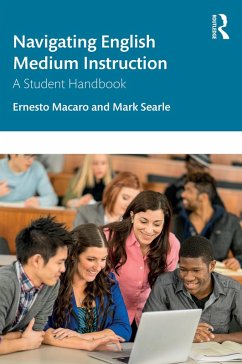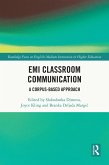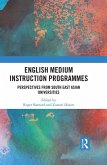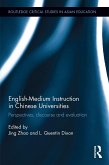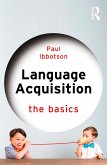35,95 €
35,95 €
inkl. MwSt.
Erscheint vor. 28.02.25

18 °P sammeln
35,95 €
Als Download kaufen

35,95 €
inkl. MwSt.
Erscheint vor. 28.02.25

18 °P sammeln
Jetzt verschenken
Alle Infos zum eBook verschenken
35,95 €
inkl. MwSt.
Erscheint vor. 28.02.25
Alle Infos zum eBook verschenken

18 °P sammeln
Unser Service für Vorbesteller - Ihr Vorteil ohne Risiko:
Sollten wir den Preis dieses Artikels vor dem Erscheinungsdatum senken, werden wir Ihnen den Artikel bei der Auslieferung automatisch zum günstigeren Preis berechnen.
Sollten wir den Preis dieses Artikels vor dem Erscheinungsdatum senken, werden wir Ihnen den Artikel bei der Auslieferung automatisch zum günstigeren Preis berechnen.
- Format: ePub
- Merkliste
- Auf die Merkliste
- Bewerten Bewerten
- Teilen
- Produkt teilen
- Produkterinnerung
- Produkterinnerung

Bitte loggen Sie sich zunächst in Ihr Kundenkonto ein oder registrieren Sie sich bei
bücher.de, um das eBook-Abo tolino select nutzen zu können.
Hier können Sie sich einloggen
Hier können Sie sich einloggen
Sie sind bereits eingeloggt. Klicken Sie auf 2. tolino select Abo, um fortzufahren.

Bitte loggen Sie sich zunächst in Ihr Kundenkonto ein oder registrieren Sie sich bei bücher.de, um das eBook-Abo tolino select nutzen zu können.
This skills-oriented handbook for English Medium Instruction (EMI) learners provides students with a toolbox of strategies and approaches to maximize their performance in their courses.
This is a valuable resource for any EMI student across the world, EMI teachers, EAP/ESP educators, and academic support staff.
- Geräte: eReader
- mit Kopierschutz
- eBook Hilfe
- Größe: 2.13MB
Andere Kunden interessierten sich auch für
![Navigating English Medium Instruction (eBook, PDF) Navigating English Medium Instruction (eBook, PDF)]() Ernesto MacaroNavigating English Medium Instruction (eBook, PDF)35,95 €
Ernesto MacaroNavigating English Medium Instruction (eBook, PDF)35,95 €![Cultivating Intercultural Communication Awareness (eBook, ePUB) Cultivating Intercultural Communication Awareness (eBook, ePUB)]() Gareth HumphreysCultivating Intercultural Communication Awareness (eBook, ePUB)40,95 €
Gareth HumphreysCultivating Intercultural Communication Awareness (eBook, ePUB)40,95 €![EMI Classroom Communication (eBook, ePUB) EMI Classroom Communication (eBook, ePUB)]() EMI Classroom Communication (eBook, ePUB)40,95 €
EMI Classroom Communication (eBook, ePUB)40,95 €![English Medium Instruction Programmes (eBook, ePUB) English Medium Instruction Programmes (eBook, ePUB)]() English Medium Instruction Programmes (eBook, ePUB)45,95 €
English Medium Instruction Programmes (eBook, ePUB)45,95 €![English-Medium Instruction in Chinese Universities (eBook, ePUB) English-Medium Instruction in Chinese Universities (eBook, ePUB)]() English-Medium Instruction in Chinese Universities (eBook, ePUB)45,95 €
English-Medium Instruction in Chinese Universities (eBook, ePUB)45,95 €![Language Acquisition (eBook, ePUB) Language Acquisition (eBook, ePUB)]() Paul IbbotsonLanguage Acquisition (eBook, ePUB)20,95 €
Paul IbbotsonLanguage Acquisition (eBook, ePUB)20,95 €![Working with Children Experiencing Speech and Language Disorders in a Bilingual Context (eBook, ePUB) Working with Children Experiencing Speech and Language Disorders in a Bilingual Context (eBook, ePUB)]() Sean PertWorking with Children Experiencing Speech and Language Disorders in a Bilingual Context (eBook, ePUB)36,95 €
Sean PertWorking with Children Experiencing Speech and Language Disorders in a Bilingual Context (eBook, ePUB)36,95 €-
-
-
This skills-oriented handbook for English Medium Instruction (EMI) learners provides students with a toolbox of strategies and approaches to maximize their performance in their courses.
This is a valuable resource for any EMI student across the world, EMI teachers, EAP/ESP educators, and academic support staff.
This is a valuable resource for any EMI student across the world, EMI teachers, EAP/ESP educators, and academic support staff.
Dieser Download kann aus rechtlichen Gründen nur mit Rechnungsadresse in A, B, BG, CY, CZ, D, DK, EW, E, FIN, F, GR, HR, H, IRL, I, LT, L, LR, M, NL, PL, P, R, S, SLO, SK ausgeliefert werden.
Produktdetails
- Produktdetails
- Verlag: Taylor & Francis eBooks
- Erscheinungstermin: 28. Februar 2025
- Englisch
- ISBN-13: 9781040307106
- Artikelnr.: 73301700
- Verlag: Taylor & Francis eBooks
- Erscheinungstermin: 28. Februar 2025
- Englisch
- ISBN-13: 9781040307106
- Artikelnr.: 73301700
- Herstellerkennzeichnung Die Herstellerinformationen sind derzeit nicht verfügbar.
Ernesto Macaro is Emeritus Professor of Applied Linguistics at the University of Oxford. Before becoming a teacher educator and researcher in language learning he was a language teacher for 16 years. His research has focused on second language learning strategies and on the interaction between teachers and learners. He now applies these foci to classrooms where academic content is being taught through English.
Mark Searle is an Honorary Norham Fellow, Associate of the EMI Research Group and previously was a Lecturer in ELT in the University of Oxford Department of Education. For many years he was a senior consultant teacher trainer for the British Council, designing and delivering teacher training courses in EAP and EMI in universities worldwide. This experience has given him considerable insight into the needs of EMI teachers and learners in many different contexts. He has also co-designed and co-delivered EMI teacher training courses with Ernesto Macaro both in the Department of Education and abroad.
Mark Searle is an Honorary Norham Fellow, Associate of the EMI Research Group and previously was a Lecturer in ELT in the University of Oxford Department of Education. For many years he was a senior consultant teacher trainer for the British Council, designing and delivering teacher training courses in EAP and EMI in universities worldwide. This experience has given him considerable insight into the needs of EMI teachers and learners in many different contexts. He has also co-designed and co-delivered EMI teacher training courses with Ernesto Macaro both in the Department of Education and abroad.
Contents
Some reactions of students from Sri Lanka and from Hong Kong
Acknowledgments
Chapter 1 : INTRODUCTORY SECTIONS
1.1a How to Work with This Book
1.1b A General Glossary of Terms Used in This Book (How We Have Used
Certain Words)
1.2 Your Transition from School to University
1.3 Let's 'Situate' Your EMI Subject
1.4 What Are Your EMI Lessons Like?
1.5 Your 'Language Support' Programme
1.6 Dealing with Words: Technical Words; Technical-Plus Words; General
Academic Words; Everyday Words
Chapter 2 : AROUND YOUR CLASSES: BEFORE TAKING OFF!
2.1 Strategies for You to Consider Just Before the Lesson
2.2 Technical and Academic Words in a Text
2.3 What Do We Mean By 'Keywords'? (Dealing With 'The Concept Iceberg')
2.4 Before the Lecture: Getting Ready!
2.5 Using the Lecture Title and Course Outline to Prepare
2.6 Knowing Your Lecturer's Voice aand Language
2.7 Online Lectures and Podcasts
2.8 Preparing to Listen to Your Teacher: Using Audio Recordings
2.9 Pre-Lecture Reading: Your Own Reasons for Reading
2.10 Pre-Reading Around Your Classes
Chapter 3 : IN-FLIGHT STRATEGIES: COPING WITH TURBULENCE
3.1 Note-Taking: What Goes on in Our Brains!
3.2 Making In-flight Lecture Notes
3.3 Strategies to Think About During the Lesson
3.4 Discourse Markers: Navigating a Lecture
3.5 The Prior Knowledge Strategy When Listening
3.6 The IRF Sequence: What It Is For; What It Does; How to Deal with It.
3.7 You and Your Home Language: To Use Or Not To Use, That Is The Question!
3.8 Language Demands of Notes
Chapter 4 : AROUND YOUR CLASSES: REFLECTING AFTER LANDING
4.1 Improving Your Note-Taking Together
4.2 The Power of Talking
4.3 Work with Course-Mates: From Notes to Connected Speech
4.4 Accountable Talk: Making It All a Little More Formal
4.5 Multiword Units
4.6 Word Families
4.7 Gently Persuading Your Teacher
4.8 Elaborate Interrogation: How/Why?
4.9 Guided Reciprocal Peer Questioning: The Power of Questions and Answers!
4.10 Reflecting on Questions Post-Lesson
4.11 Examples of Socratic Questions: Invitations to Better Thinking
4.12 Ideas for Better Answers
4.13 Developing Your Range of Rhetorical Functions
4.14 Working on Your Own with Your Smartphone
4.15 Modified Cornell Notes: From In-Flight Note-Taking to Post-Flight
Note-Making
4.16 Post-Class Reading For Writing
4.17 Writing
Some reactions of students from Sri Lanka and from Hong Kong
Acknowledgments
Chapter 1 : INTRODUCTORY SECTIONS
1.1a How to Work with This Book
1.1b A General Glossary of Terms Used in This Book (How We Have Used
Certain Words)
1.2 Your Transition from School to University
1.3 Let's 'Situate' Your EMI Subject
1.4 What Are Your EMI Lessons Like?
1.5 Your 'Language Support' Programme
1.6 Dealing with Words: Technical Words; Technical-Plus Words; General
Academic Words; Everyday Words
Chapter 2 : AROUND YOUR CLASSES: BEFORE TAKING OFF!
2.1 Strategies for You to Consider Just Before the Lesson
2.2 Technical and Academic Words in a Text
2.3 What Do We Mean By 'Keywords'? (Dealing With 'The Concept Iceberg')
2.4 Before the Lecture: Getting Ready!
2.5 Using the Lecture Title and Course Outline to Prepare
2.6 Knowing Your Lecturer's Voice aand Language
2.7 Online Lectures and Podcasts
2.8 Preparing to Listen to Your Teacher: Using Audio Recordings
2.9 Pre-Lecture Reading: Your Own Reasons for Reading
2.10 Pre-Reading Around Your Classes
Chapter 3 : IN-FLIGHT STRATEGIES: COPING WITH TURBULENCE
3.1 Note-Taking: What Goes on in Our Brains!
3.2 Making In-flight Lecture Notes
3.3 Strategies to Think About During the Lesson
3.4 Discourse Markers: Navigating a Lecture
3.5 The Prior Knowledge Strategy When Listening
3.6 The IRF Sequence: What It Is For; What It Does; How to Deal with It.
3.7 You and Your Home Language: To Use Or Not To Use, That Is The Question!
3.8 Language Demands of Notes
Chapter 4 : AROUND YOUR CLASSES: REFLECTING AFTER LANDING
4.1 Improving Your Note-Taking Together
4.2 The Power of Talking
4.3 Work with Course-Mates: From Notes to Connected Speech
4.4 Accountable Talk: Making It All a Little More Formal
4.5 Multiword Units
4.6 Word Families
4.7 Gently Persuading Your Teacher
4.8 Elaborate Interrogation: How/Why?
4.9 Guided Reciprocal Peer Questioning: The Power of Questions and Answers!
4.10 Reflecting on Questions Post-Lesson
4.11 Examples of Socratic Questions: Invitations to Better Thinking
4.12 Ideas for Better Answers
4.13 Developing Your Range of Rhetorical Functions
4.14 Working on Your Own with Your Smartphone
4.15 Modified Cornell Notes: From In-Flight Note-Taking to Post-Flight
Note-Making
4.16 Post-Class Reading For Writing
4.17 Writing
Contents
Some reactions of students from Sri Lanka and from Hong Kong
Acknowledgments
Chapter 1 : INTRODUCTORY SECTIONS
1.1a How to Work with This Book
1.1b A General Glossary of Terms Used in This Book (How We Have Used
Certain Words)
1.2 Your Transition from School to University
1.3 Let's 'Situate' Your EMI Subject
1.4 What Are Your EMI Lessons Like?
1.5 Your 'Language Support' Programme
1.6 Dealing with Words: Technical Words; Technical-Plus Words; General
Academic Words; Everyday Words
Chapter 2 : AROUND YOUR CLASSES: BEFORE TAKING OFF!
2.1 Strategies for You to Consider Just Before the Lesson
2.2 Technical and Academic Words in a Text
2.3 What Do We Mean By 'Keywords'? (Dealing With 'The Concept Iceberg')
2.4 Before the Lecture: Getting Ready!
2.5 Using the Lecture Title and Course Outline to Prepare
2.6 Knowing Your Lecturer's Voice aand Language
2.7 Online Lectures and Podcasts
2.8 Preparing to Listen to Your Teacher: Using Audio Recordings
2.9 Pre-Lecture Reading: Your Own Reasons for Reading
2.10 Pre-Reading Around Your Classes
Chapter 3 : IN-FLIGHT STRATEGIES: COPING WITH TURBULENCE
3.1 Note-Taking: What Goes on in Our Brains!
3.2 Making In-flight Lecture Notes
3.3 Strategies to Think About During the Lesson
3.4 Discourse Markers: Navigating a Lecture
3.5 The Prior Knowledge Strategy When Listening
3.6 The IRF Sequence: What It Is For; What It Does; How to Deal with It.
3.7 You and Your Home Language: To Use Or Not To Use, That Is The Question!
3.8 Language Demands of Notes
Chapter 4 : AROUND YOUR CLASSES: REFLECTING AFTER LANDING
4.1 Improving Your Note-Taking Together
4.2 The Power of Talking
4.3 Work with Course-Mates: From Notes to Connected Speech
4.4 Accountable Talk: Making It All a Little More Formal
4.5 Multiword Units
4.6 Word Families
4.7 Gently Persuading Your Teacher
4.8 Elaborate Interrogation: How/Why?
4.9 Guided Reciprocal Peer Questioning: The Power of Questions and Answers!
4.10 Reflecting on Questions Post-Lesson
4.11 Examples of Socratic Questions: Invitations to Better Thinking
4.12 Ideas for Better Answers
4.13 Developing Your Range of Rhetorical Functions
4.14 Working on Your Own with Your Smartphone
4.15 Modified Cornell Notes: From In-Flight Note-Taking to Post-Flight
Note-Making
4.16 Post-Class Reading For Writing
4.17 Writing
Some reactions of students from Sri Lanka and from Hong Kong
Acknowledgments
Chapter 1 : INTRODUCTORY SECTIONS
1.1a How to Work with This Book
1.1b A General Glossary of Terms Used in This Book (How We Have Used
Certain Words)
1.2 Your Transition from School to University
1.3 Let's 'Situate' Your EMI Subject
1.4 What Are Your EMI Lessons Like?
1.5 Your 'Language Support' Programme
1.6 Dealing with Words: Technical Words; Technical-Plus Words; General
Academic Words; Everyday Words
Chapter 2 : AROUND YOUR CLASSES: BEFORE TAKING OFF!
2.1 Strategies for You to Consider Just Before the Lesson
2.2 Technical and Academic Words in a Text
2.3 What Do We Mean By 'Keywords'? (Dealing With 'The Concept Iceberg')
2.4 Before the Lecture: Getting Ready!
2.5 Using the Lecture Title and Course Outline to Prepare
2.6 Knowing Your Lecturer's Voice aand Language
2.7 Online Lectures and Podcasts
2.8 Preparing to Listen to Your Teacher: Using Audio Recordings
2.9 Pre-Lecture Reading: Your Own Reasons for Reading
2.10 Pre-Reading Around Your Classes
Chapter 3 : IN-FLIGHT STRATEGIES: COPING WITH TURBULENCE
3.1 Note-Taking: What Goes on in Our Brains!
3.2 Making In-flight Lecture Notes
3.3 Strategies to Think About During the Lesson
3.4 Discourse Markers: Navigating a Lecture
3.5 The Prior Knowledge Strategy When Listening
3.6 The IRF Sequence: What It Is For; What It Does; How to Deal with It.
3.7 You and Your Home Language: To Use Or Not To Use, That Is The Question!
3.8 Language Demands of Notes
Chapter 4 : AROUND YOUR CLASSES: REFLECTING AFTER LANDING
4.1 Improving Your Note-Taking Together
4.2 The Power of Talking
4.3 Work with Course-Mates: From Notes to Connected Speech
4.4 Accountable Talk: Making It All a Little More Formal
4.5 Multiword Units
4.6 Word Families
4.7 Gently Persuading Your Teacher
4.8 Elaborate Interrogation: How/Why?
4.9 Guided Reciprocal Peer Questioning: The Power of Questions and Answers!
4.10 Reflecting on Questions Post-Lesson
4.11 Examples of Socratic Questions: Invitations to Better Thinking
4.12 Ideas for Better Answers
4.13 Developing Your Range of Rhetorical Functions
4.14 Working on Your Own with Your Smartphone
4.15 Modified Cornell Notes: From In-Flight Note-Taking to Post-Flight
Note-Making
4.16 Post-Class Reading For Writing
4.17 Writing
